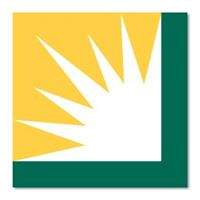Don’t Let Caller ID Spoofing Hang You Up
That ‘Southern California Edison’ phone call may not be legit.
By Susan Cox
Your telephone rings and a Southern California Edison number appears on your caller ID display.
You answer and the caller says they are affiliated with SCE and want to talk to you about solar installations or other products and services that can save you money on your electric bill. They may then ask about your electricity usage and other personal information.
Beware! This may sound like a legitimate SCE call, but it’s not. It’s a caller ID spoofing scam.
What is caller ID spoofing? It’s a practice in which a caller, using special phone equipment and technology, deliberately falsifies information on your caller ID display to mask the true origin of the call. In this case, the call appears to be from SCE or a trusted customer partner, when in reality the caller has no association with SCE. From there, the caller may try to sell you products, collect personal information or say a payment is due on your electric bill when it’s not.
Never give your personal information, such as your SCE account number, Social Security number, credit card information or PIN number.
“Southern California Edison takes privacy seriously and makes every effort to protect customers’ information,” said Kari Gardner, SCE manager of Consumer Affairs. “And while there’s nothing we can do technology-wise to prevent spoofing, we can educate our customers and let them know these calls are not from Edison or our customer partners.”
So far this year, nearly 400 SCE customers have reported spoofing calls. SCE urges customers to beware of unsolicited calls in which the caller asks you for billing information or other personal data. And never give your personal information, such as your SCE account number, Social Security number, credit card information or PIN number.
If you suspect you’ve received a spoofing call, please report the incident to SCE at csinfogov@sce.com. The more information you can provide regarding the call, the number that appeared on your caller ID and what the caller told you, the better SCE will be able to assist.
Here are some additional facts and tips to help customers protect themselves from caller ID spoofing scammers:
Red Flag Warnings
- Calls are made multiple times per day.
- Some calls are made outside of normal operating hours (for example, 2 a.m.).
- Customers are asked about their electricity usage or meter information.
- Caller provides recommendations for purchasing alternative energy sources.
- Customers are asked to provide their Social Security number or other personal information.
Tips to Protect You From Caller ID Spoofing
- Never provide your electricity bill to anyone you don’t know.
- Never provide your MyAccount login credentials.
- SCE does not send solar representatives to customers’ homes or businesses, nor does SCE have solar companies contact customers by phone.
- SCE does not sell home improvement products to reduce your energy costs.
- SCE will never ask for credit card information or electricity usage information over the phone.
- SCE will never call customers outside the hours of 9 a.m.-9 p.m. except to provide customer requested outage updates.
- If you believe you are the recipient of a spoofing call, contact SCE Information Governance at csinfogov@sce.com.
For more information: www.sce.com/scamalert.
